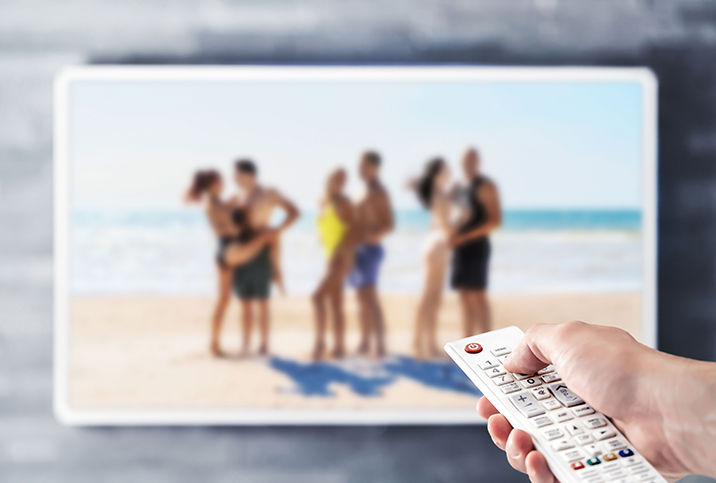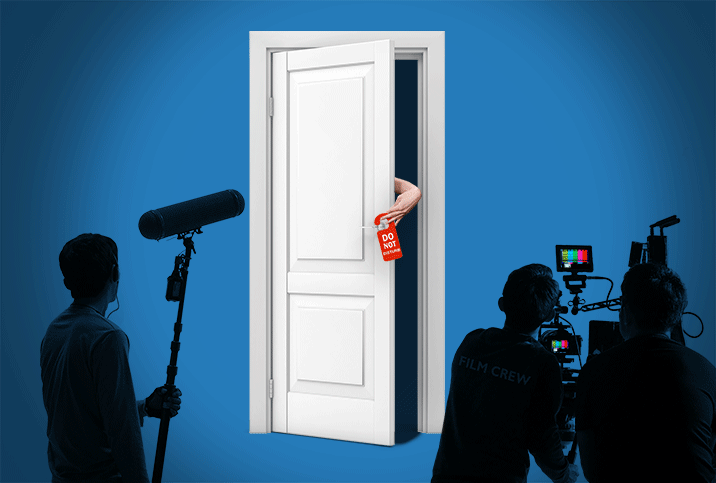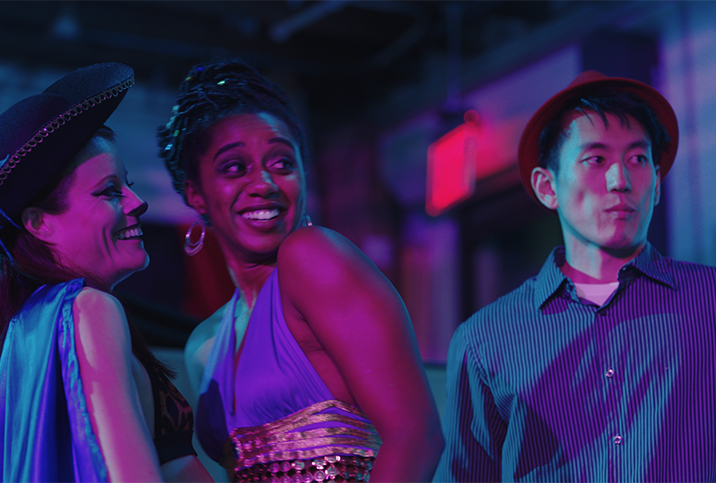It's Time We Talked About 'Experts' on Reality Dating Shows

Don't get me wrong, reality TV is a great guilty pleasure. In fact, sometimes I don't even feel all that guilty. Watching "real" men and women work through relationship problems or try their hand at finding love can teach us a lot about our own relationship patterns, habits and mistakes.
However, the more I watch reality dating shows, the more concerned I become about how they're being framed as reputable sources for relationship education. Netflix's "Love at First Sight," for instance, is framed as a scientific "experiment." And then there are others, such as "Love Is Blind," "Married at First Sight" and "Are You the One?" that purport to use "experts" to match strangers.
In the latest season of "Married at First Sight UK," the so-called dating experts seemed to be serving the interests of the show rather than the interests of the couples. In one scene, a visibly upset woman claimed the man she'd been paired with expressed that his sole purpose of being on the show was to find fame. When she asked to leave, the experts convinced her to stay. Would this happen in a real-world relationship therapy scenario? And, more importantly, are viewers hearing this advice and taking it to heart?
How qualified is this advice?
"I do notice inappropriate advice and comments given by experts on a few TV dating shows," said Callisto Adams, a dating expert at HeTexted, located in Nevada. "TV dating shows tend to gravitate toward dramatic and intense nuances to keep the viewers more engaged. That could sometimes affect the experts as well, as they might find themselves in a position where they've got to adapt to the nature of the show and its rules."
At the end of the day, we never know exactly what is going on behind the scenes on these reality shows, but chances are both contestants and experts are under pressure to follow certain storylines. After all, the purpose of these shows isn't to teach us about relationships or even to help contestants form healthy relationships; it's to entertain us.
According to Charlotte Johnson, a relationship expert at MegaPleasure, an online sex shop based in England, shows such as "Married at First Sight" aren't always as "real" as they look. While watching the couples at the infamous dinner parties, Johnson explained, the expert's job is to "pick up on body language and questionable judgments and actions, even if it's just the smallest of 'issues,' to make the show more dramatic."
She added the experts often use what they see to probe.
"From this, they're able to elicit questions or emotions, which perhaps the couples may not be directly experiencing," Johnson said.
As Johnson explained, we shouldn't assume the experts on reality TV aren't interested in the couples at all. Instead, she believes a mixture of targeted advice and tactful editing results in some of the most questionable "wisdom."
"For the hour's worth of television that audiences view, there's most likely much more serious evaluation of the couples and their relationships, with no doubt lots of positives mixed into the negatives," she said.
Is the trend of reality TV relationship experts dangerous?
Comments from relationship experts may have an impact on viewers.
"For some, it could affect them in a negative way and could create a feeling of self-doubt," Johnson said. "It's therefore imperative to self-evaluate if you're the type of person to take everything to heart. If you are, then perhaps this genre of TV isn't for you. Watch it for your own amusement, but don't take it to heart. What you see has been edited to gather a reaction from the audience."
On the other hand, reality dating shows can often educate us and help us understand relationship dynamics.
"It can be very beneficial to see how couples and individuals handle particular bumps in the road," Adams said.
Remember, it's important to take the expert advice with a grain of salt—unless you want to inject more drama into your relationship.
"Considering that more drama equals more viewers, airing the calm and fruitful advice or results might not be the best decision for a reality TV show," Adams said. "Viewers mustn't forget that the show is edited, redacted and cut a few times before it reaches them. Whether it's a healthy dose of skepticism or a quick research on the experts, the viewer must always keep in mind the nature of the show, the nature of the industry, and the realness of the issues and advice they're consuming through TV."


















